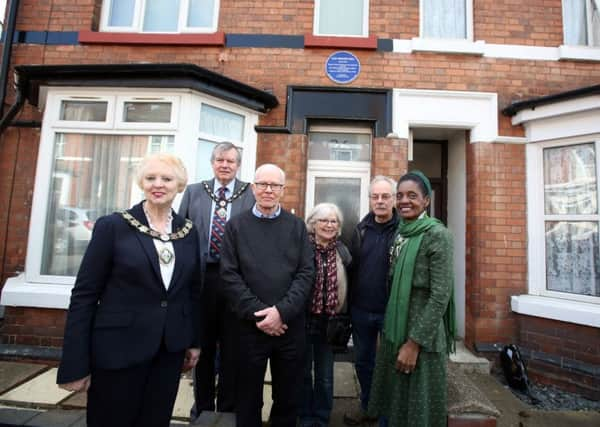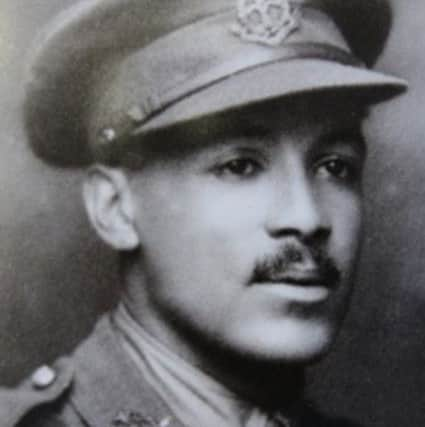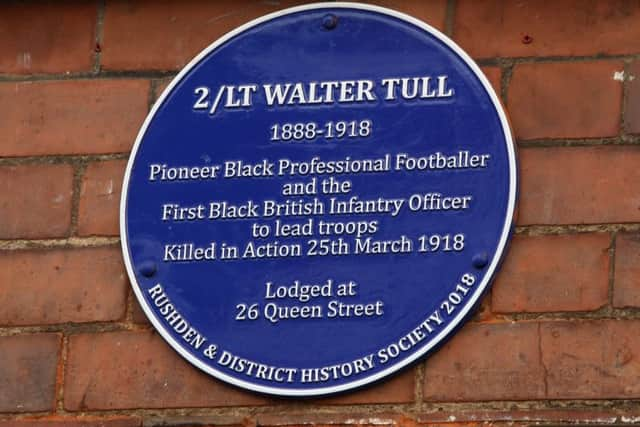PICTURE GALLERY: Plaque unveiled in memory of World War One hero from Rushden


People gathered for the unveiling of a blue plaque at 26, Queen Street in Rushden to mark the centenary of the death of Walter Tull yesterday (Sunday).
The plaque and unveiling event was organised by Rushden & District History Society.
Advertisement
Hide AdAdvertisement
Hide AdAmong those attending were Rushden mayor Barbara Jenney and Morcea Walker, who is one of the deputies of Northamptonshire’s Lord Lieutenant.


They were joined by Tull’s great niece and great nephews Ed Finlayson, Duncan Finlayson and Pat Justad.
Tull was one of the first black professional footballers who played for Tottenham Hotspur before being transfered to Northampton Town in 1911 where he made 110 appearances before his career was interrupted by the outbreak of World War One.
During his time with the Cobblers, he was befriended by fellow professional and Rushden man Eric Thompson who brought him to Rushden where Tull lodged in Queen Street.
Advertisement
Hide AdAdvertisement
Hide AdHe enlisted in the Army in 1914 and after three quick promotions was made a sergeant.


Tull was selected for officer training and in 1917 was sent to the Italian front having been made a 2nd lieutenant in the Middlesex Regiment.
On March 25, 1918, he was killed trying to protect his men from German machine gun fire.
The blue plaque mentions that Tull was a pioneer black professional footballer and the first black British infantry officer to lead troops into battle.
Advertisement
Hide AdAdvertisement
Hide AdBut this is not the first memorial to him in the county as there is one at the home of the Cobblers, Sixfields Stadium in Northampton.


The epitaph, written by Phil Vasili, reads: “Through his actions, Tull ridiculed the barriers of ignorance that tried to deny people of colour equality with their contemporaries.
“His life stands testament to a determination to confront those people and those obstacles that sought to diminish him and the world in which he lived.
“It reveals a man, though rendered breathless in his prime, whose strong heart still beats loudly.”
The road that runs behind the north stand at Sixfields Stadium is also named Walter Tull Way.